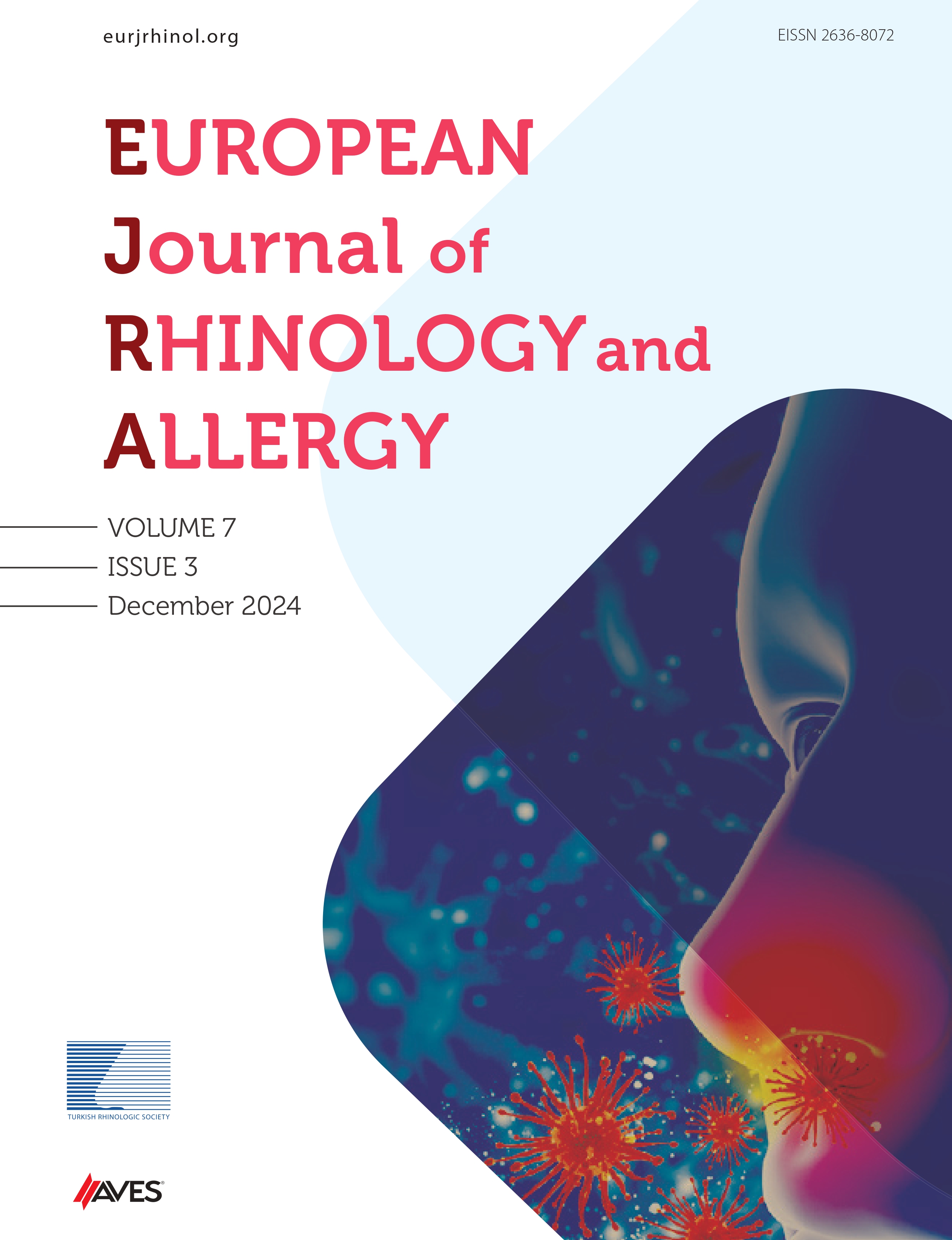Background: Septorhinoplasty is one of the most common surgical intervention for patients with nasal obstruction and nasal deformities. We aimed to determine the pathologies detected in the preoperative Paranasal Sinus Computed Tomography (PNS CT) in patients who have undergone septorhinoplasty, to compare the planned surgery with the surgical method performed after the CT scan and to determine the patients who should be preoperatively evaluated with PNS CT.
Methods: In this retrospective study, a total of 100 patients who performed septorhinoplasty who had PNS CT scan due to nasal obstruction and nasal discharge symptoms were enrolled.
Results: According to PNS CT, nasal septal deviation was mild in 51 patients, moderate in 21 patients, and severe in 28 patients. Concha bullosa was detected in 36 patients, and paradox concha was detected in four patients. Inferior turbinate fracture, lateralization, and submucosal cauterization were performed in 23 of 51 patients with inferior turbinate hypertrophy. In nine of the patients (9%) (n ¼ 3, functional endoscopic sinus surgery; n ¼ 6, concha bullosa lateral lamellar resection), the surgery plan was changed according to findings in PNS CT.
Conclusion: If a sinonasal vegetative mass lesion is detected in nasal endoscopy, or the nasal cavity and nasopharynx cannot be evaluated with the endoscope due to severe deviation, middle turbinate obstructing the nasal cavity, and a complication of chronic sinusitis, PNS CT can be applied.
Cite this article as: Aysel A, Koç¸ AM, Zorlu ME, Yıldırım O, Muderris T. Is Paranasal Sinus Computed Tomography Required before Every Septorhinoplasty Surgery? Eur J Rhinol Allergy. 2021;4(3):77-80.

.png)

.png)